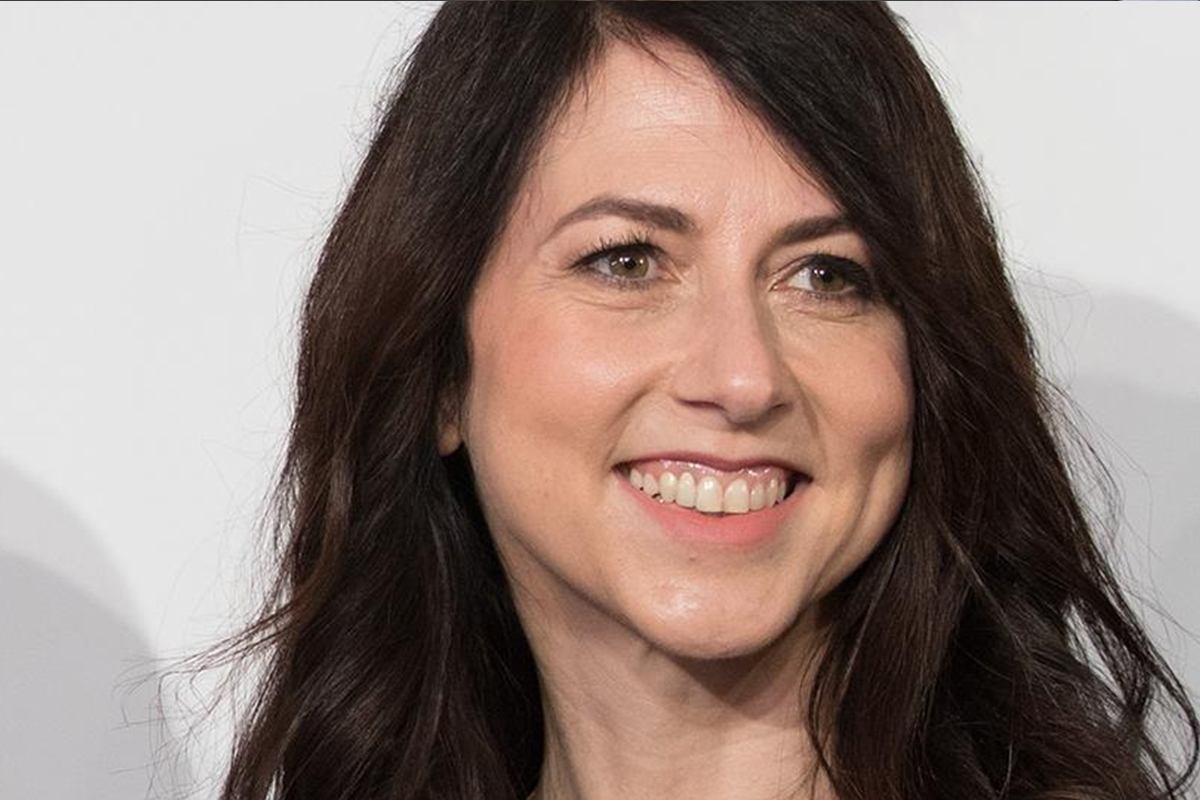How philanthropy changed in 2020
2020 was in anyone's estimation an extraordinary year, even to the 50 Americans who gave the most money to charity, according to The Chronicle of Philanthropy’s annual rankings.
The publication, whose information is based on extensive research with donors, their beneficiaries and public records, said that the top donations went to a broader set of causes, with millions of dollars going towards food pantries, historically Black colleges and universities, and organisations that serve the poor and the homeless.
Another cause that was a top beneficiary of billionaires was climate change.
Amazon Founder Jeff Bezos, who recently announced he was stepping down as CEO, made the biggest donation by putting US$10 billion in at the launch of the Bezos Earth Fund. He also contributed US$100 million to Feeding America, the organisation that supplies more than 200 food banks and 60,000 food pantries.
Bezos' former wife, MacKenzie Scott, gave seven- and eight-figure gifts, totalling US$5.7 billion, to 512 organisations, including food banks, human-service organisations and racial-justice charities. Scott signed the Giving Pledge in 2019, promising to give away the majority of her fortune, which includes the US$38 billion she received in her divorce settlement with Bezos.

"I asked a team of non-profit advisors with key representation from historically marginalised race, gender and sexual identity groups to help me find and assess organisations having major impact on a variety of causes," she said in July.
In December, she made further significant donations to 384 organisations. "After my post in July, I asked a team of advisors to help me accelerate my 2020 giving through immediate support to people suffering the economic effects of the (COVID-91) crisis," Scott shared.
"They took a data-driven approach to identifying organisations with strong leadership teams and results, with special attention to those operating in communities facing high projected food insecurity, high measures of racial inequity, high local poverty rates, and low access to philanthropic capital."
Michael Bloomberg, the majority owner and Co-Founder of Bloomberg, a financial, software, data, and media company, contributed US$1.6 billion to arts, education, public health and other causes.
Nike Co-Founder Phil Knight and his wife Penelope Knight donated US$1.4 billion, with US$900 million going to the Philip H Knight Charitable Foundation Trust. Knight was previously Chair and CEO of Nike.
Jack Dorsey, the Co-Founder and CEO of Twitter and Founder and CEO of Square, put US$1.1 billion into a fund that by year’s end had distributed at least US$330 million to more than 100 not-for-profit organisations.
I’m moving $1B of my Square equity (~28% of my wealth) to #startsmall LLC to fund global COVID-19 relief. After we disarm this pandemic, the focus will shift to girl’s health and education, and UBI. It will operate transparently, all flows tracked here: https://t.co/hVkUczDQmz
— jack (@jack) April 7, 2020
The Chronicle of Philanthropy said the US$1 billion-plus of giving by each of the top five on its Philanthropy 50 list matches last year’s record. No more than three donors gave US$1 billion or more in any of the previous years.
"When I look at the events of the last year, there was an awakening for the philanthropic sector," says Nick Tedesco, President of the National Center for Family Philanthropy. "Donors supported community-led efforts of recovery and resiliency, particularly those led by people of colour."
Giving experts said they think the trend towards broader giving is likely to persist.
"I don’t think this approach is just a 12-month moment that started with COVID and continued following George Floyd and is going to recede," said Melissa Berman, President of Rockefeller Philanthropy Advisors, which counsels donors around the world. "There has been change building among private donors."
The 50 biggest acts of philanthropy contributed US$24.7 billion in 2020, compared with US$15.8 billion in 2019. Only 23 of the people on the Forbes 400 list gave enough to qualify for the list. Many of the multimillion-dollar donations came from those far less wealthy, like Gordon Rausser, a former dean of natural resources at the University of California at Berkeley.